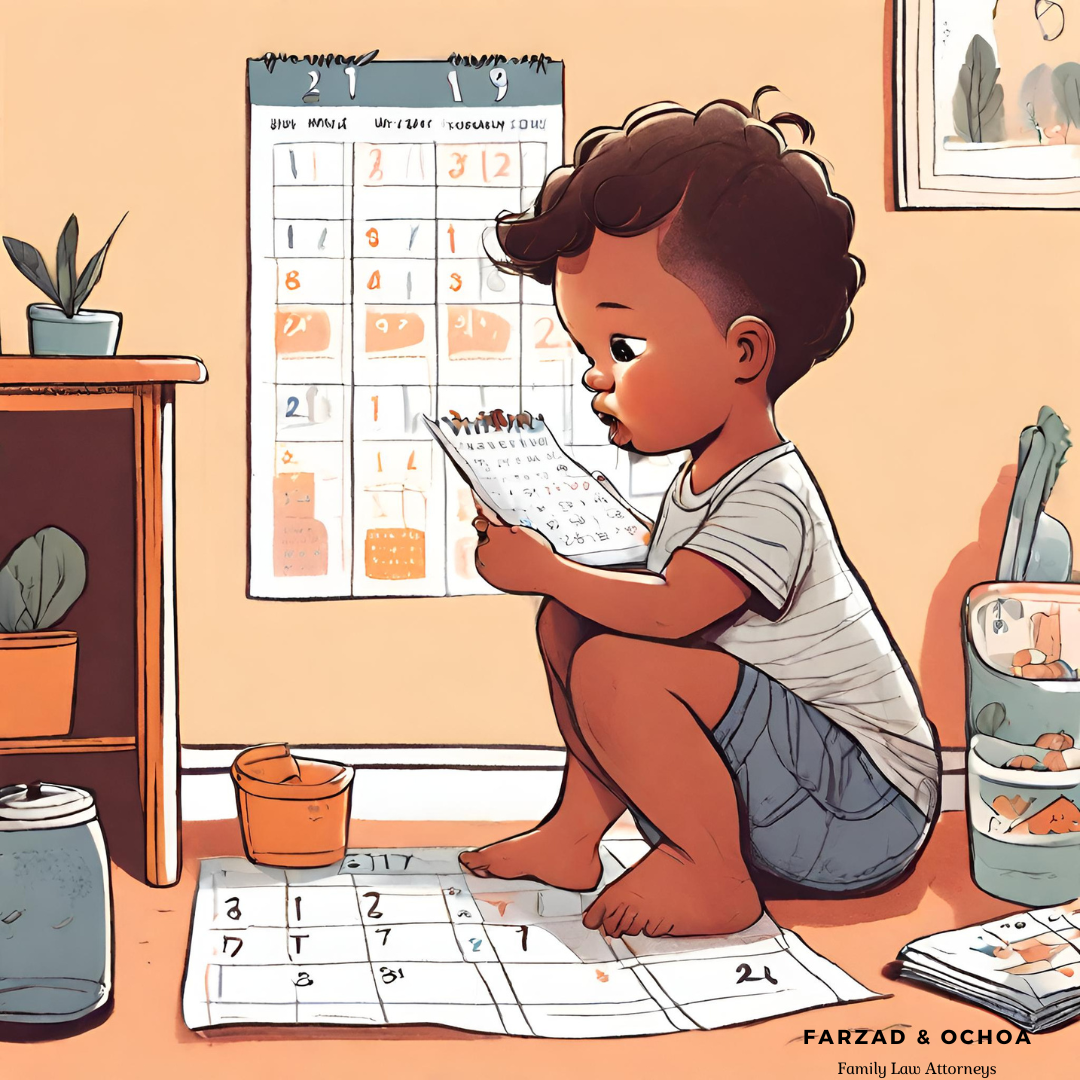What Are the Best Parenting Schedules for Toddlers
7 Great Toddler Parenting Schedules for Separated or Divorcing Parents
Parenting schedules for toddlers will change significantly depending on how bonded the toddler is to one or both parents and how that bonding changes with time.
The parenting schedule must focus on the toddler's best interest and bring predictability and consistency. Toddlers thrive on each of these because they bring them comfort and security and reduce anxiety.
Let's get into the parenting schedules. After discussing the schedule, we will discuss the important factors parents must consider when choosing a schedule.
The toddler's bonding with one or both parents is essential to the schedule

Bonding refers to the trust the toddler has with each parent. That trust is their security and comfort.
For this reason, toddlers should not spend too much time away from either parent, especially from a more bonded parent. Since toddlers do not understand time like older children, they need frequent and consistent contact with both parents. Long absences cause separation anxiety and significantly reduce their comfort level.
Separation anxiety usually peaks between fifteen to twenty-four months of age. The process should become easier once toddlers pass that age, and longer absences will usually become more manageable.
Co-parenting for parents with a toddler
Co-parenting is essential to good parenting of a toddler. Open communication about the toddler's needs and flexibility, as well as sharing information about diet, health, daily routines, likes and dislikes, and more, will make any parenting schedule more manageable.
Smooth and friendly transitions
First-time parents sometimes overreact to a crying child during a transition to the other parent. Crying is normal during separation. That is why it is important that the transition happens quickly and that both parents cooperate and be amicable during the process.
When a toddler transitions from one parent's house to the other, that transition can be anxiety-inducing until they get used to it. Having a routine for goodbyes and hellos (and not one drawn out), keeping emotions in check (a toddler does not do well when parents look or act emotional), and transitional toys (something that travels with the toddler) work well.
Developmental milestones can change the schedule
It is a mistake to be inflexible as the toddler gets older. As toddlers age, the schedule should change to fit their needs. Naps are a great example. They are important at the outset, but once a toddler no longer needs two naps, transitions to one, and eventually does not need one, that can modify a custody schedule.
Your Strategy Session
About your strategy session
Southern California Offices
Locations
Our Services and Fees
Frequently asked questions
Strategy sessions are designed for the serious parent. We know how important your children are to you. Their health, safety and best interests are our priority.
